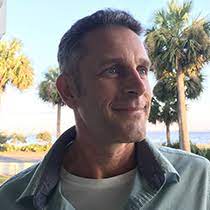Christian Wagley, of Healthy Gulf
If you had a leak in your roof that got larger and dumped gallons of water with every storm, any reasonable person would fix the leak. But for a majority of our state elected officials facing the effects of climate change, they only want to put out bigger buckets to catch the water. And these are very expensive buckets.
Florida is dealing with tremendous impacts from climate change, as hotter temperatures stress agriculture and natural systems, drive more frequent large hurricanes and intense rainstorms, flood our coastline and generally make Florida a more difficult and less pleasant place to live.
Just last week the city of Pensacola unveiled a vulnerability index that shows significant areas of downtown Pensacola are forecast to go underwater in the decades ahead. Studies show that our warming climate is a huge economic drain on the state.
There’s no debate about what is causing this – mainly the burning of fossil fuels and the resultant heating of our atmosphere, causing oceans to expand in volume and land-based glaciers to melt. Polling shows that nearly three-quarters of Floridians are concerned about climate change and know that it is responsible for rising seas. There is still a chance to lessen and eventually stop much of this damage.

But in the recent session of the Florida Legislature, the majority Republican delegation chose to hinder the expansion of renewable energy while favoring corporations over citizens.
A bill that would have allowed school districts and local governments to access innovative financing to install solar panels on their buildings went nowhere. Florida is one of only four states that essentially forbids this financing model (which protects monopoly utilities from competition) widely used to help homeowners and businesses install solar panels on their roofs.
Another bill that would speed-up the transition to renewable energy by requiring monopoly utilities to set formal renewable energy goals–as is the case in 37 other states–also went nowhere.
Not only did the Legislature not act to treat the cause of climate change, they did the opposite: They worked to protect the oil and natural gas industries, passing bills that insulate them from efforts by local governments to phase-out fossil fuels.
Action to expand the use of solar energy is needed because we must accelerate the transition to renewable energy. While Florida’s electric utilities are moving in that direction, relying on them alone will not get us there fast enough and will cost more, as they are driven by what is best for their investors. Also, they are too big and lacking in innovation to quickly shift their energy mix.
Gulf Power/Florida Power and Light’s state filings show the utility forecasts that it will produce only about 16% of its electricity from renewable sources by 2029. That’s way too late to protect us from the worst impacts of climate change, and does not come close to meeting renewable energy targets set by 12 cities in Florida, most of which call for 100% renewable energy by 2040.
Right now Gulf Power’s energy mix is still about 89% dirty—electricity produced mainly from natural gas from fracking that is a terrible driver of climate change due to leaks during extraction and distribution.
What did the Legislature get right? They established the Resilient Florida Grant Program to help fund local projects to elevate structures and to build flood control measures to help adapt to flooding.
This constitutes the “buckets” I referred to earlier and is a necessary response to the threats from the warming climate. Unfortunately, part of the program’s $640 million comes from $111 million taken away from the state’s $400 million affordable housing fund. They also added major funding for land preservation, another climate adaptation needed as our state’s natural lands help to soften climate change impacts.
Climate change is here, and it’s an epic threat to Florida. I challenge our legislators to treat the cause by accelerating Florida’s transition to renewable energy and the thousands of clean energy jobs it will create. Putting out bigger “buckets” to catch the floodwaters won’t be enough to protect Florida from climate change.
This piece first appeared in the Pensacola News Journal.
Christian Wagley is coastal organizer for Healthy Gulf, a nonprofit organization devoted to the Gulf of Mexico and the waterways and communities along its shores.
“The Invading Sea” is the opinion arm of the Florida Climate Reporting Network, a collaborative of news organizations across the state focusing on the threats posed by the warming climate.




Thanks for the Fl legislative energy bad news, I thought the solar schools bill had passed. I guess it’ll take a hurricane to stall over Tallahassee for them to act. Great op-ed, people should be able to see your metaphor.